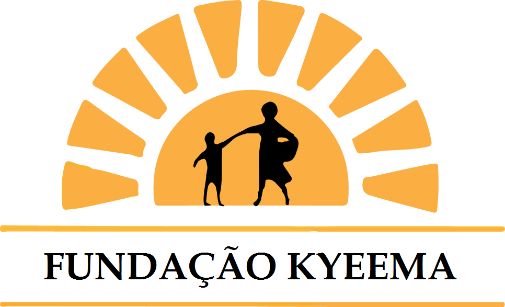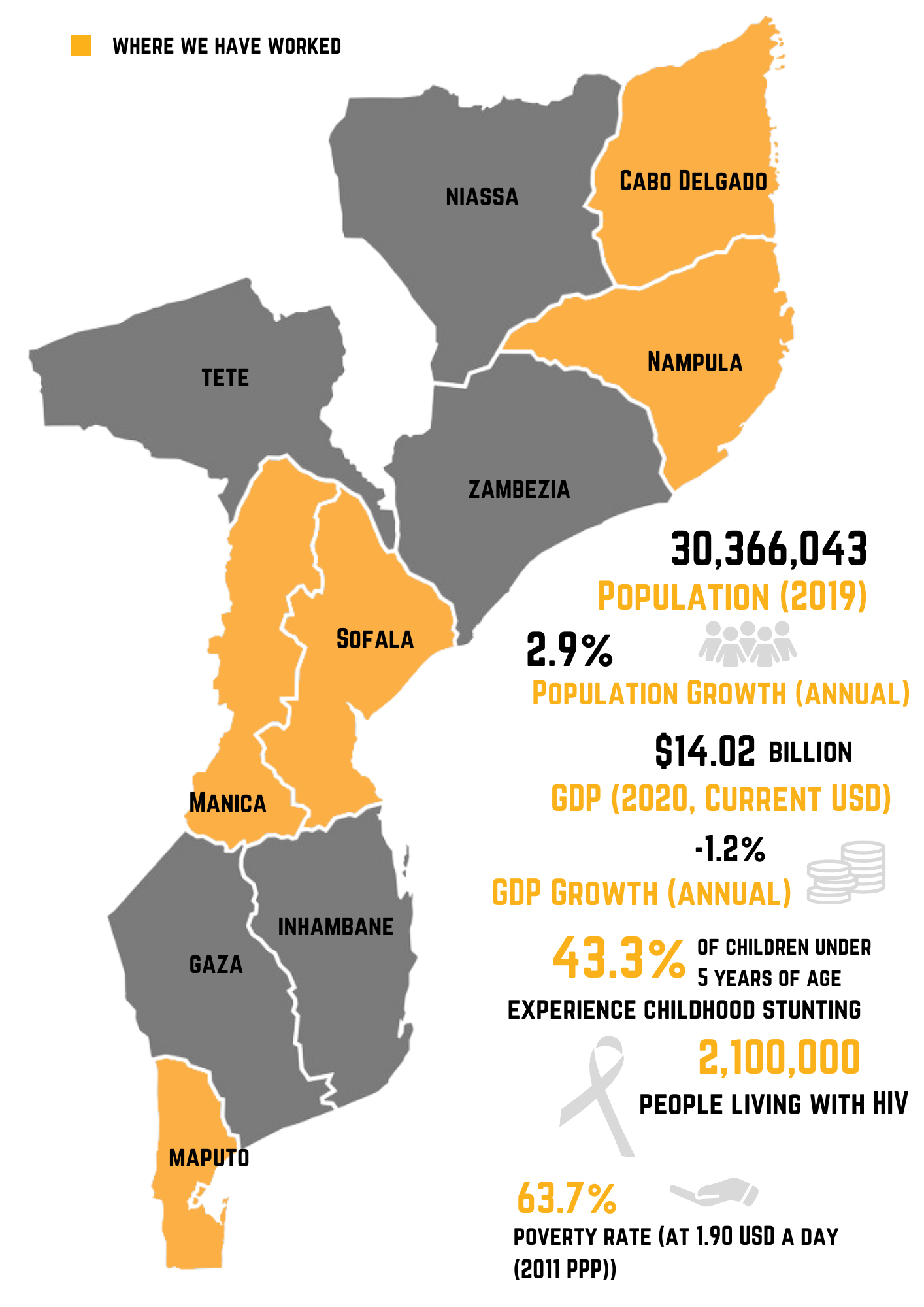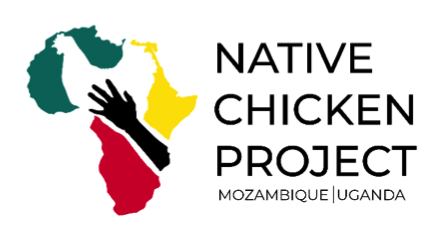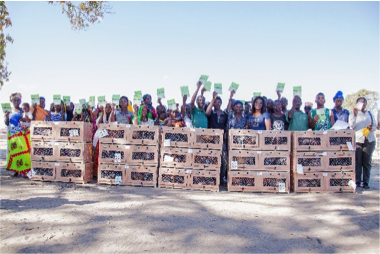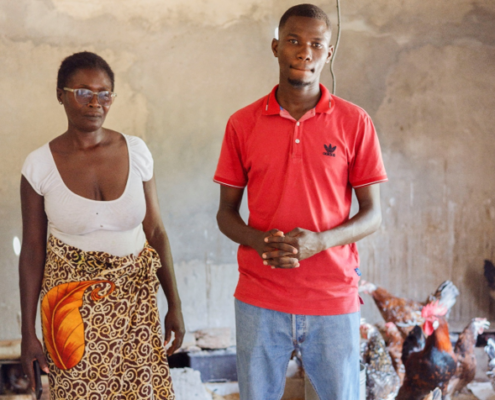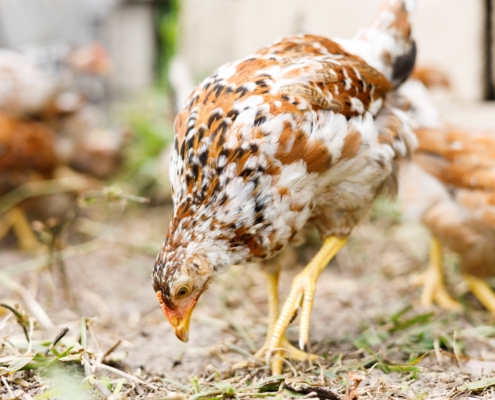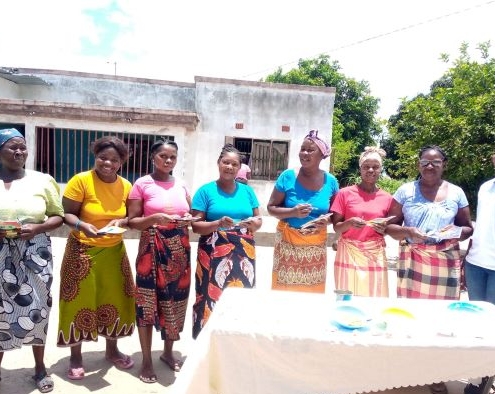Fundação Kyeema
Mozambique is one of the most disaster-prone countries in the world. And it is highly vulnerable to extreme climatic conditions, which destroy infrastructure and restrict economic growth. Because of this, efforts for sustainability and the eradication of extreme poverty and hunger are hindered.
Fundação Kyeema in Mozambique has been working hard since 2003 to expand the reach of the Newcastle disease (ND) vaccination program for village chickens. With our partners, both national and local government agencies and NGOs, our deidcated staff there have been able to support the production and distribution of quality Newcastle disease vaccine to families and chickens in rural communities across the country.
Current Projects
Supporting female farmers to grow village chicken businesses in Mozambique
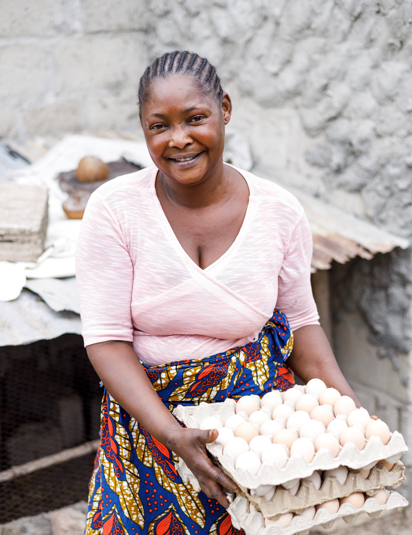 This project will support the committed and successful female farmers on the “Female-led village chicken value chain development” pilot project in Marracuene district of Mozambique to grow their businesses in an organised and sustainable way.
This project will support the committed and successful female farmers on the “Female-led village chicken value chain development” pilot project in Marracuene district of Mozambique to grow their businesses in an organised and sustainable way.
Location: Marracuene, Mozmabique
Donor: DFAT ANCP program
Status: Ongoing (started July 2024)
Learn more about this project here.
Transforming rural small livestock production systems into semi-commercial production units
The project aims to improve village poultry production and control Newcastle disease (ND) in Mozambique. By promoting the use of the thermotolerant I-2 vaccine and enhancing poultry husbandry practices, Kyeema aims to sustainably increase the availability and accessibility of proven agricultural and nutritional technologies. The project focuses on equitably benefiting farming households, enhancing the use and adoption of good agricultural practices, and increasing the productivity and consumption of nutritious food. Through community-based training and practical interventions, Kyeema is making a significant impact on food security and economic stability for vulnerable communities.
Location: Nampula and Zambézia
Partner: International Institute of Tropical Agriculture (IITA)
Status: Ongoing (July 2024-June 2025)
Past projects
Sofala Province Water, Energy, and Food Security Project (SWEF)
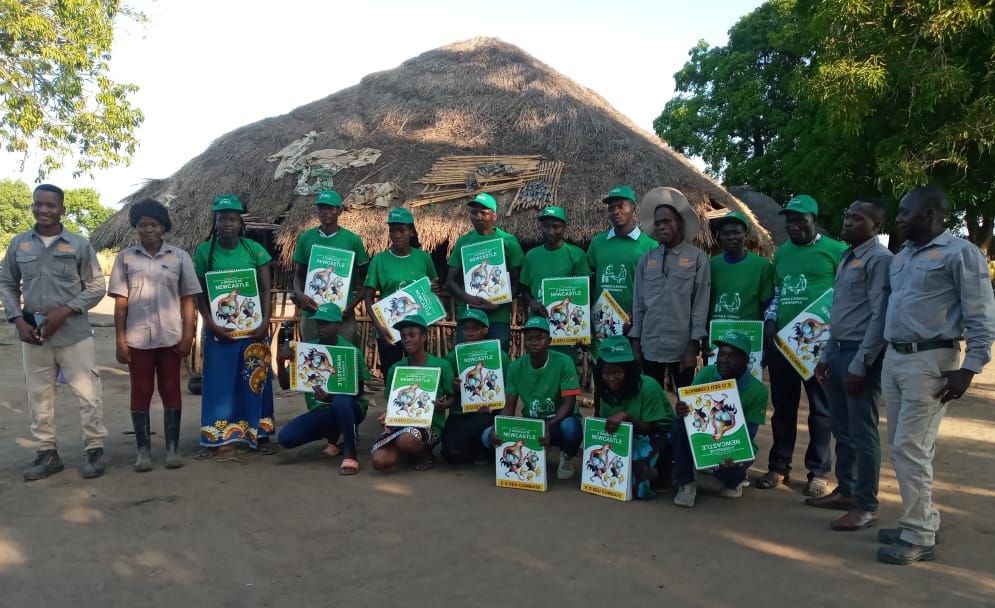 Kyeema was responsible for implementing the livestock component of the SWEF Project in the districts of Búzi, Caia, and Machanga, with a primary focus on improving chicken and goat production within the family farming sector. In collaboration with IITA and in coordination with the Provincial Directorate of Agriculture and Food Security (DPAP) and the District Economic Activities Services (SDAE), Kyeema provided technical support and training to local communities. These efforts aimed to enhance livestock productivity, improve household nutrition, and strengthen the livelihoods of vulnerable groups, including women, the elderly, and people with disabilities.
Kyeema was responsible for implementing the livestock component of the SWEF Project in the districts of Búzi, Caia, and Machanga, with a primary focus on improving chicken and goat production within the family farming sector. In collaboration with IITA and in coordination with the Provincial Directorate of Agriculture and Food Security (DPAP) and the District Economic Activities Services (SDAE), Kyeema provided technical support and training to local communities. These efforts aimed to enhance livestock productivity, improve household nutrition, and strengthen the livelihoods of vulnerable groups, including women, the elderly, and people with disabilities.
Location: Búzi, Caia, and Machanga; Sofala Province
Partner: International Institute of Tropical Agriculture (IITA)
Donor: Austrian Development Agency
Status: Complete (August 2020 – July 2024)
Marker-assisted breeding of selected native chickens in Mozambique and Uganda
Together with University Eduardo Mondlane, Makerere University, Gulu University and Uganda Women’s Network, Kyeema is working to increase the quantity and quality of chicken products in the market, which will result in better household nutrition and income for farmers in Mozambique and Uganda.
Learn more about the project here.
Donor: African Union and the European Commission
Status: Complete.
Master Trainer projects to improve improve Newcastle disease control in village chickens
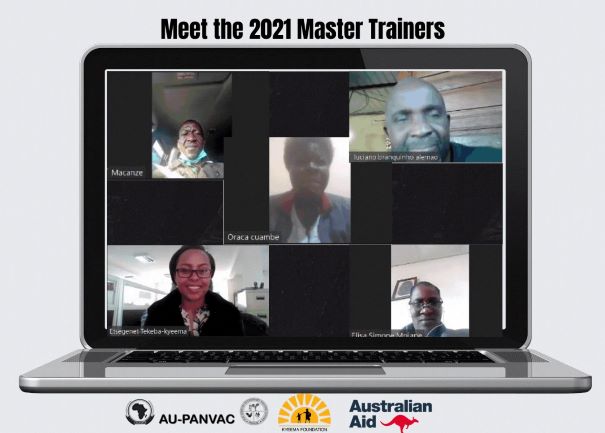 AU-PANVAC and Kyeema have developed a program to improve AU Member States’ (MS) capacity to sustainably control Newcastle disease (ND) in village chickens. To date, three training courses have been prepared and course modules have been peer reviewed by cohorts of animal health professionals from AU-MS. Activities in Mozambique are focused on set up sustainable ND projects in key regions by recently trained Master Trainers in the country.
AU-PANVAC and Kyeema have developed a program to improve AU Member States’ (MS) capacity to sustainably control Newcastle disease (ND) in village chickens. To date, three training courses have been prepared and course modules have been peer reviewed by cohorts of animal health professionals from AU-MS. Activities in Mozambique are focused on set up sustainable ND projects in key regions by recently trained Master Trainers in the country.
Learn more about the wider program here.
Donor: DFAT ANCP program
Status: Complete
Promoting local chicken small business to mitigate the impact of COVID-19 on rural vulnerable women
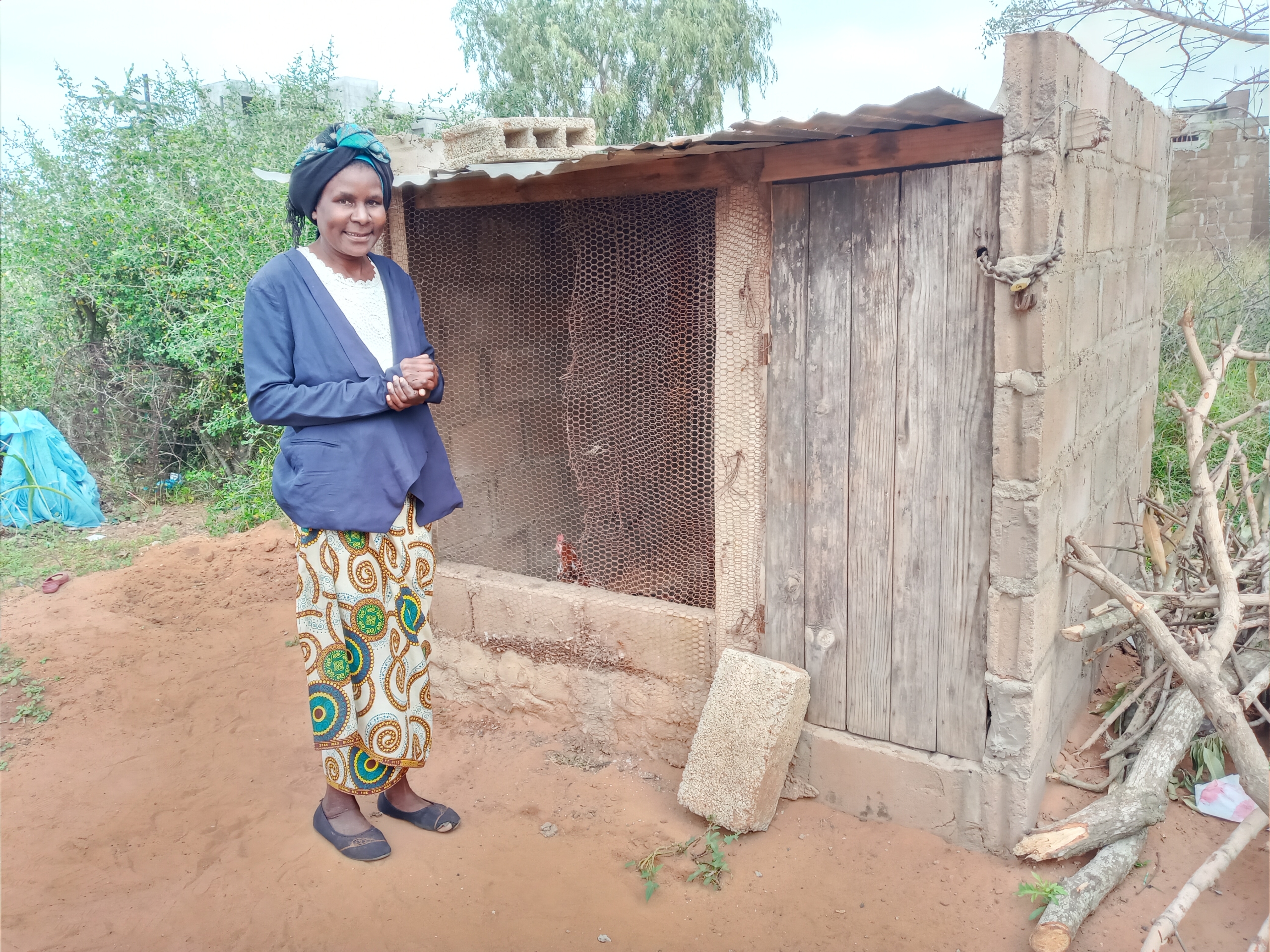 This project is making efforts to improve the nutrition, health and livelihoods of rural communities in Mozambique. The pandemic has negatively impacted people’s livelihoods due to restrictions on the movement of goods and people, which has caused economic hardship, especially for female-headed households. This project was designed to mitigate these impacts by promoting small-scale poultry production as a means of economic empowerment for vulnerable women.
This project is making efforts to improve the nutrition, health and livelihoods of rural communities in Mozambique. The pandemic has negatively impacted people’s livelihoods due to restrictions on the movement of goods and people, which has caused economic hardship, especially for female-headed households. This project was designed to mitigate these impacts by promoting small-scale poultry production as a means of economic empowerment for vulnerable women.
Read more about the project here.
Location: Marracuene, Mozmabique
Donor: Kyeema donors
Status: Complete
Implementation and operation of agricultural livelihoods Programs, Total LNG Resettlement Project
Kyeema is working with the International Institute for Tropical Agriculture (IITA) to deliver an agricultural livelihoods program to communities affected by the development of an offshore liquefied natural gas (LNG) facility in Palma district, Cabo Delgado.
The overall goal of the agricultural livelihood restoration programs is to ensure that all physically and economically displaced households achieve sustainable levels of food security within 18 months after they have been relocated.
Learn more about the project here.
Location: Cabo Delgado
Status: Complete
Vaccinated village chickens for HIV and AIDS affected households
Kyeema worked in the Marracuene district, where the HIV prevalence is estimated at 10%. This project worked with affected households, providing poultry husbandry training and chicken starter packs to reduce malnutrition. Kyeema also trained 36 community vaccinators (50% women) and supported 3 Newcastle disease vaccine campaigns.
COMPLETED 2018.
Newcastle disease vaccine production and chicken vaccination programs to address malnutrition.
Kyeema worked with local communities to expand the number of households vaccinating chickens against Newcastle disease, to produce healthier and larger flocks, and thus encourage more households to consume and sell their chickens and eggs.
COMPLETED 2014 – 2017
Supported by: FAO


